PAGE TURNER: Angelika Taschen
Illustrations commissioned by NOWNESS, an arts and culture website. The website description of this project reads as follows:
Book publisher Angelika Taschen’s favorite novels––and where she read them––are wittily illustrated in this retro comic book-inspired series by artist Joe McKendry. The daughter of bookshop owners, Taschen (née Herbert) grew up surrounded by reading matter and famous German authors, such as Siegfried Lenz and Sarah Kirsch, who would regularly visit her parents’ store in Bonn. “I always knew my life would never be boring as long as there were books around to read and inspire me,” she says. Last year she established Angelika Publishers in Berlin after 23 years of working with her ex-husband Benedict Taschen’s eponymous publishing company, where she helped define the current popularity of coffee table art and design books. Angelika Publishers has so far released two titles––On Perfume Making by Frédéric Malle and Anna Bauer’sBackstage––but Taschen is not rushing to put out the next. “I have to really believe in a book,” she explains. “The subject must be special and it must be very well done conceptually.” Here the bibliophile talks us through the books and places that have colored her life so far.

Gottfried von Strassburg’s Tristan; a camping site, England
This is one of the highlights in my life. It was quite a long time ago when my daughter was born, and we went camping somewhere in England. I was studying German literature at the time. It is written in medieval German. I was fascinated by the poetry and simplicity of it. It’s a skill to write about complex things with simple words, so you understand the depth. I can only read these very sad books in a very beautiful environment.
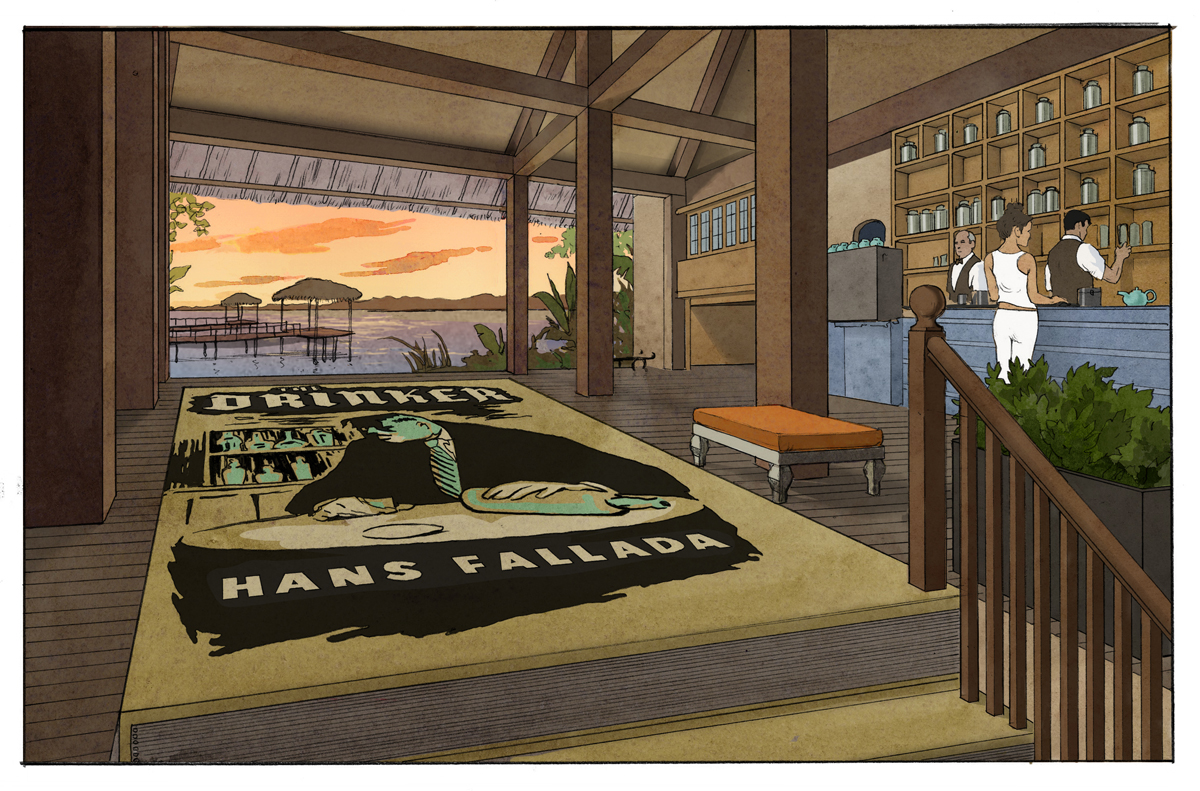
Hans Fallada’s The Drinker; Ayurvedic resort, Sri Lanka
I loved being by the ocean and living this super healthy life, not drinking alcohol and only eating vegetarian food. This very sad book is about an alcoholic man who had a nice marriage, a good business, but he destroyed everything by drinking. He takes out his guilt on his wife and becomes aggressive. Probably this was the only moment, at a health resort, where I could read such a hard book. He ends up in the psychiatric hospital, and I was at this luxury retreat.
I loved being by the ocean and living this super healthy life, not drinking alcohol and only eating vegetarian food. This very sad book is about an alcoholic man who had a nice marriage, a good business, but he destroyed everything by drinking. He takes out his guilt on his wife and becomes aggressive. Probably this was the only moment, at a health resort, where I could read such a hard book. He ends up in the psychiatric hospital, and I was at this luxury retreat.
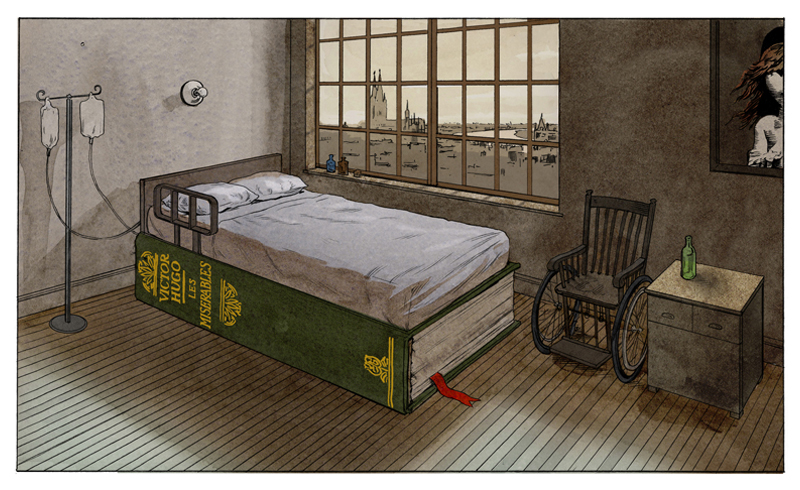
Victor Hugo’s Les Miserables; in hospital, Cologne
I had to be in the hospital, and reading this book, which is over 1,000 pages long, was an escape from the boredom. I like when novels develop groups of interconnected characters and this has some of the most complex, multifaceted character development I’ve experienced. Hugo writes about the human condition, which is timeless.

Thomas Bernhard’s The Loser; in my bed, Berlin
I tried many times before to read Bernhard but it never clicked. Like reading James Joyce, you need a certain understanding of literature to be able to enjoy his books. It’s a description of [pianist] Glenn Gould. What I like about this book is that it demonstrates the difference between genius and skill. From the first line to the last line there is not a chapter, or paragraph break—there’s no pause. It’s very difficult to read.
I tried many times before to read Bernhard but it never clicked. Like reading James Joyce, you need a certain understanding of literature to be able to enjoy his books. It’s a description of [pianist] Glenn Gould. What I like about this book is that it demonstrates the difference between genius and skill. From the first line to the last line there is not a chapter, or paragraph break—there’s no pause. It’s very difficult to read.

Hans Fallada’s Every Man Dies Alone; Hydra, Greece
Every year [gallerist] Sadie Coles organizes an exhibition in Hydra with [collector] Pauline Karpidas. Curator Clarissa Dalrymple was also reading this book there. We were lying on a beautiful beach and reading about the most tragic time in German history, how the Nazis created this distrust in people that enabled them to do terrible things to their neighbors and friends. It is one of the only books that helped me understand, even a little bit, how this was possible.
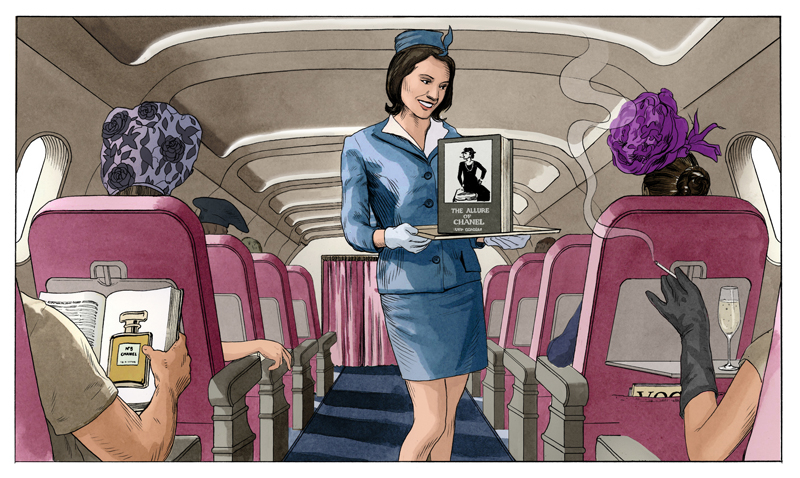
Paul Morand’s The Allure of Chanel; on an airplane to Sri Lanka
You can really focus on reading on an airplane because there’s nothing else to do. Morand met Chanel several times in the 50s and early 60s and made notes after their meetings. I’m interested in biographies and this is about how she developed from a very poor, hard background and was able to become such a successful woman.
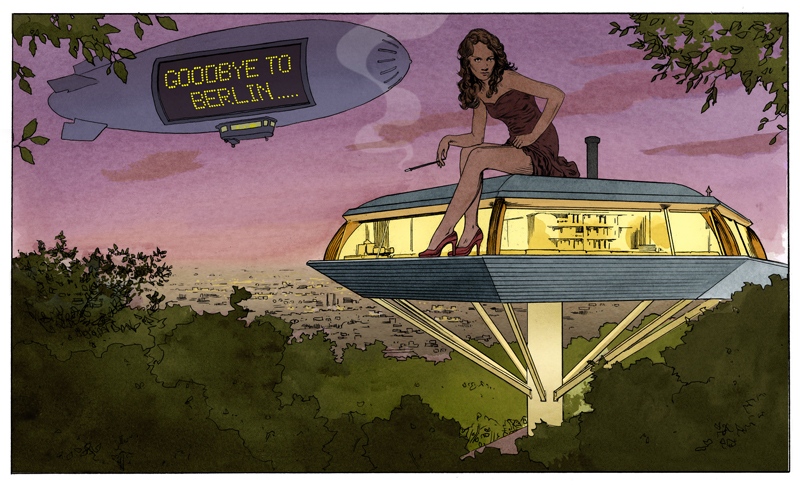
Christopher Isherwood’s Goodbye to Berlin; Chemosphere House, Los Angeles
At the time I was living in the Chemosphere House and had a conversation with David LaChapelle about Bob Fosse’s Cabaretstarring Liza Minnelli—it’s our favorite movie. After that I decided to read the original book, which is completely different from the film. It’s a time and a place that really interest me: Berlin in the 20s and 30s.
At the time I was living in the Chemosphere House and had a conversation with David LaChapelle about Bob Fosse’s Cabaretstarring Liza Minnelli—it’s our favorite movie. After that I decided to read the original book, which is completely different from the film. It’s a time and a place that really interest me: Berlin in the 20s and 30s.
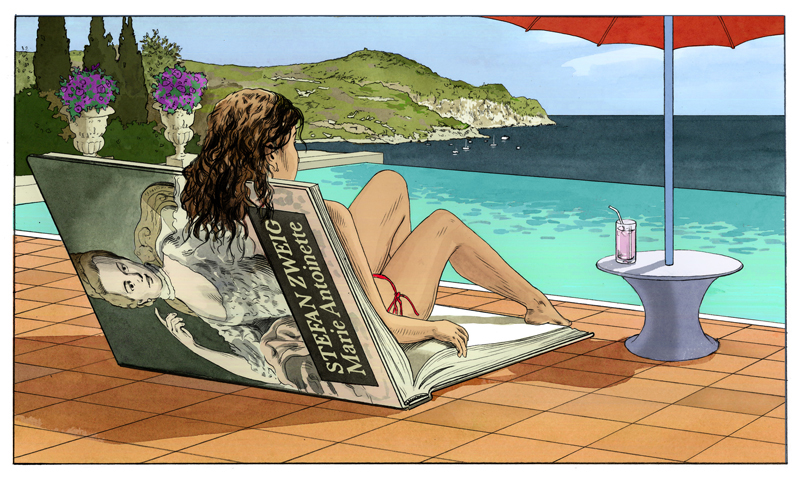
Stefan Zweig’s Marie Antoinette; by the pool in Argentario, Tuscany
I was on holiday and both my friend and I were reading Marie Antoinette by the pool. It was after the film by Sofia Coppola came out. Zweig is a master of psychology—he really draws a figure in history. For me, this is a much more enjoyable way of understanding history than reading actual history books.
I was on holiday and both my friend and I were reading Marie Antoinette by the pool. It was after the film by Sofia Coppola came out. Zweig is a master of psychology—he really draws a figure in history. For me, this is a much more enjoyable way of understanding history than reading actual history books.


